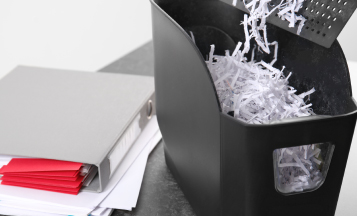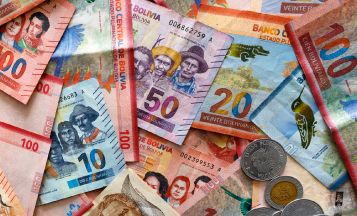How often have you heard that saving for life’s unexpected events is very important and a necessary part of being financially prepared? Most likely A LOT! Accompanying this message often is the statement that you need three to six months of expenses in your emergency savings account.
For those of us who struggle with saving for the unexpected or are saving but don’t have that three to six months amount accumulated, our confidence might be shaken because we haven’t met this standard. And when we lack confidence, it can be even harder to get or stay motivated to save for those unexpected events or opportunities that arise.
Instead of focusing on what you haven’t accomplished, here are a few strategies to consider that may help you build your financial confidence and begin or continue your path to saving for the unexpected.

Set Small Goals
Set a goal of saving $500 for emergencies and once you reach this amount, set a new goal for another $500 and keep going. Reaching several smaller goals feels good and when we feel good, we’re more likely to remain committed to our plan.
If you’re not sure exactly how much you can realistically save each month, try using the America Saves Spending and Saving Tool to get a clear view of your finances. Once you know exactly what your income and expenses are you will be able to set a realistic timeframe for saving that first $500 or beyond. Remember that Nymeo members have access to a budgeting tool built right into online banking!
Make Sure You are Consistent
Consistency can help build confidence. Automatically saving every time you get paid is the easiest way to be a consistent saver and consistency builds confidence. You can set up split deposit saving with your employer or your financial institution so that a portion of every paycheck goes directly into a dedicated savings account. When you are saving $10, $20 or some other amount every paycheck you will see regular progress, building your confidence along the way.

Stay Positive and Think About the Future
Instead of only focusing on the negative reasons for having an emergency savings account, think of it as saving for opportunities. Framing the reason you are saving in a more positive light may help you feel better about setting money aside. Not only are you saving to pay for car repairs, home expenses, or medical bills, tell yourself you are saving for an unplanned dinner out to celebrate a friend’s birthday or the chance to go see your favorite artist in concert. Those positive feelings can be motivating.
Use the three to six months of expenses in a savings account as a guideline. Try not to become discouraged if you have not met this level. Instead, focus on what makes the most sense for you at this time, knowing that as your income grows and/or expenses decrease your ability to save more and more quickly will change.
Take Action
This week is America Saves Week! Many Americans are acting and pledging to save! Find out more information and take the pledge at Pledge | America Saves.
Category: Financial Literacy & Safety



